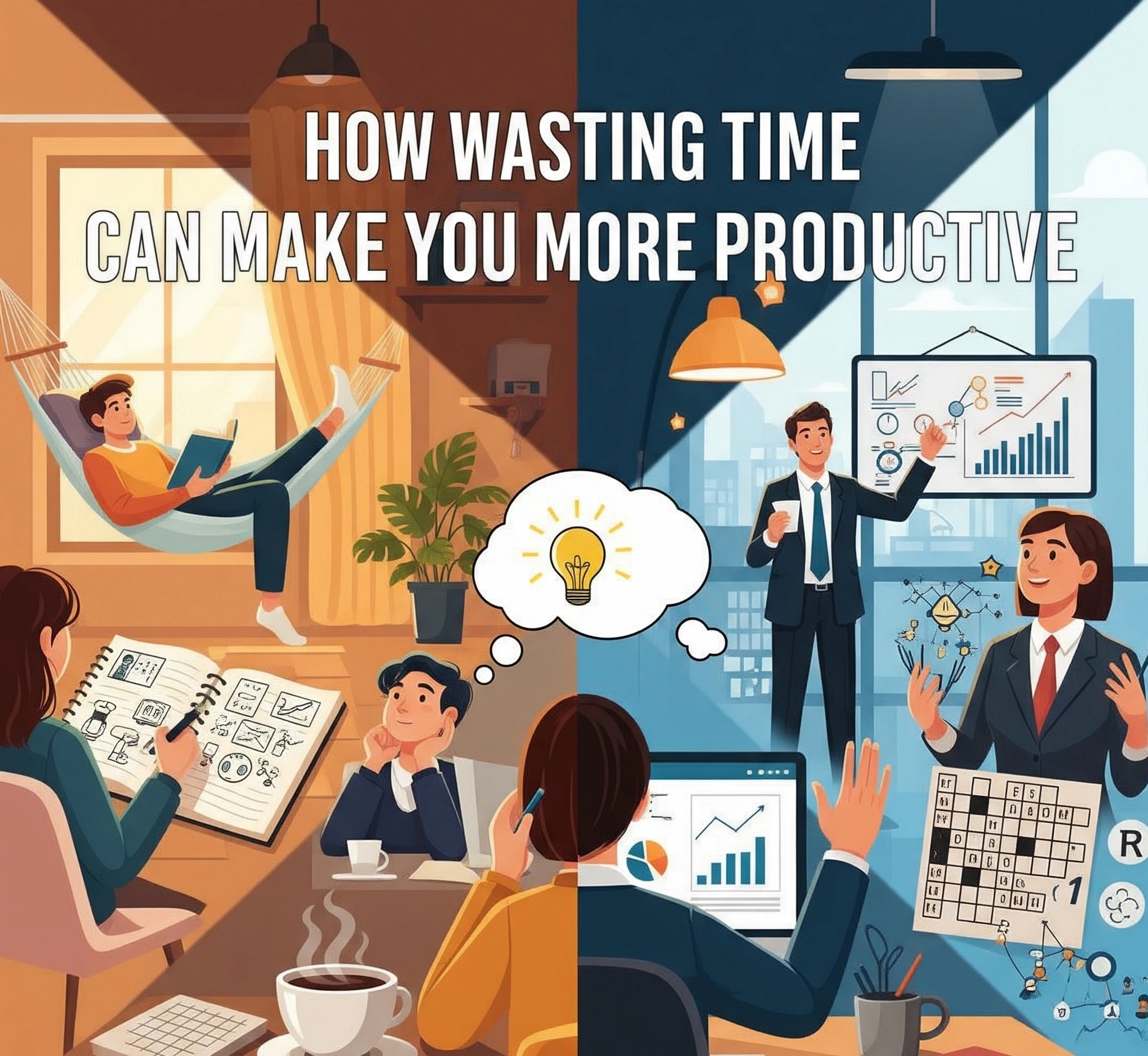How Wasting Time Can Make You More Productive

In a world obsessed with optimization and relentless output, the idea of "wasting time" often carries a negative connotation. It's seen as the enemy of progress, a thief of precious moments that could be spent on more "meaningful" tasks. However, emerging research and anecdotal evidence suggest a counterintuitive truth: strategically incorporating periods of seemingly unproductive activity can actually lead to increased focus, creativity, and overall productivity. Let's delve into this fascinating paradox.
The Myth of Constant Productivity
Our modern work culture often glorifies the image of the always-on, perpetually busy individual. We're led to believe that maximizing every minute is the key to success. But the human brain isn't designed for continuous, high-intensity work. Just like any muscle, it needs rest and recovery to perform optimally. Pushing ourselves to constantly be productive can lead to burnout, decreased cognitive function, and ultimately, lower quality output.
The Power of Diffuse Thinking
Cognitive science highlights two primary modes of thinking: focused and diffuse. Focused thinking is what we engage in when we're actively concentrating on a specific problem, trying to find a direct solution. Diffuse thinking, on the other hand, occurs when our minds are allowed to wander freely, without a specific goal. Activities that might seem like "wasting time," such as daydreaming, taking a walk without a destination, listening to music, or engaging in a non-work-related hobby, actually activate this diffuse mode of thinking.
It's in this relaxed, less structured state that our brains can make unexpected connections, incubate ideas, and gain fresh perspectives on problems that seemed intractable during focused work. Think of it as allowing your mental searchlight to broaden, potentially illuminating solutions that were hidden in the shadows of intense concentration.
Combating Decision Fatigue
Every decision we make, no matter how small, consumes mental energy. This is known as decision fatigue. Over the course of a workday filled with numerous tasks and choices, our capacity for making effective decisions diminishes. Engaging in activities that don't require significant cognitive effort can provide a much-needed mental break, allowing us to recharge our decision-making batteries. That "useless" scroll through social media or a few minutes of chatting with a colleague can surprisingly improve your ability to make sound judgments on more important tasks later on.
Boosting Creativity and Innovation
Creativity often arises from unexpected places, from the cross-pollination of seemingly unrelated ideas. When we're constantly focused on a specific task, we limit our exposure to new information and perspectives. "Wasting time" by exploring different subjects, reading fiction, or engaging in artistic pursuits can expose us to novel concepts and inspire innovative solutions in our work. These seemingly unproductive moments can be the fertile ground where breakthrough ideas take root.
The Importance of Breaks for Sustained Focus
Think of productivity not as a sprint, but as a marathon. Just as a runner needs to pace themselves and take breaks to avoid exhaustion, our minds need regular pauses to maintain sustained focus. Short periods of "wasting time" can act as these mental breaks, preventing burnout and allowing us to return to our tasks with renewed energy and concentration. The Pomodoro Technique, which advocates for short breaks during focused work intervals, is a testament to this principle.
Intentional Unproductivity: A Strategic Tool
The key lies in being intentional about our "wasted" time. Instead of mindlessly scrolling through our phones for hours, we can schedule short breaks for specific activities that we find relaxing or enjoyable. This could be listening to a podcast, doing a few minutes of stretching, or simply stepping away from our workspace to clear our heads. By consciously incorporating these periods of unproductivity into our routine, we can harness their benefits without derailing our overall goals.
In conclusion, while the pressure to be constantly productive is pervasive, recognizing the value of seemingly "wasted" time can be a game-changer. By embracing moments of mental wandering, engaging in enjoyable but unproductive activities, and taking regular breaks, we can actually enhance our focus, boost our creativity, and achieve greater levels of sustained productivity in the long run. So, the next time you feel the urge to step away from your work and indulge in a bit of "time-wasting," remember that you might just be fueling your next breakthrough.